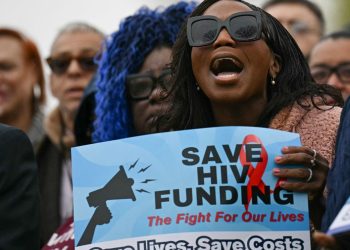The United States Preventive Services Taskforce (USPSTF) on Tuesday issued a recommendation against people over the age of 60 using daily aspirin intake as a primary method of preventing cardiovascular disease.
According to the independent, expert organization, aspirin use among people over the age of 60 seeking to prevent heart disease showed “no net benefit.”
However, the USPSTF said people between the ages of 40 and 59 who have a 10 percent or greater 10-year risk of heart disease should make their own individual decisions about whether to take aspirin as primary prevention. Individuals within this younger age range could reap a “small net benefit” according to the organization.
By thinning blood, aspirin helps prevent blood clots from forming, including in vessels that feed the heart and brain, which could cause a heart attack or stroke, respectively. However blood thinners can also present complications, such as when someone is having surgery and blood does not clot properly.
Daily aspirin use has been widely recommended for preventing heart disease and stroke for many decades now, but recent evidence has suggested that the risks may outweigh the possible benefits.
The USPSTF came to its own recommendation after analyzing 11 heart disease prevention trials that looked into using a low-dose aspirin as a way of preventing heart disease. The organization concluded that the heightened risk of bleeding, which increases with age, cancelled out the possible preventative benefits gained from taking a daily aspirin.
The USPSTF first issued a draft recommendation against preventative aspirin use in people over 60 in October.
“It’s important that people who are 40 to 59 years old and don’t have a history of heart disease have a conversation with their clinician to decide together if starting to take aspirin is right for them,” John Wong, a professor of medicine at Tufts University School of Medicine and a member of the task force, said at the time.















